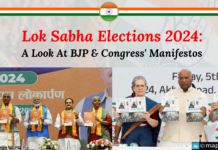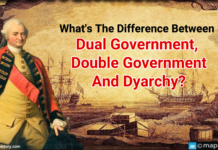Japanese PM Shinzo Abe was the chief guest at today’s Republic Day parade. It’s a part of the legacy that our nation has followed for decades. The news may not ring a bell in many expect those who have an inclination for reading between the lines. However, the decision to choose Japan could be looked upon as strategic. There are reasons for it. It’s a clear signal that we are reaching out to the nations, which are long considered China’s backyard.
Mr. Abe is the first Prime Minister of Japan to attend Indian Republic Day parade in the capital. This happened at a very crucial juncture, and very interesting too. The PM is visiting India at a time when Sino-Japan ties are strained due to a dispute over islands in the East China Sea. Hence, Abe’s visit is likely to be monitored closely by our Chinese neighbours.
India and Japan reportedly signed eight pacts on Saturday to further bolster their strategic and global partnership. Another round of bilateral talks is likely to happen and the surmounting tension with China is a certainly going to figure in their agenda. Since both New Delhi and Tokyo have their own set of problems with Beijing, coming together of two Asian neighbors can make China suspicious.
One important facet of the Indian Republic Day is the display of nation’s military prowess, although some claim that it is not completely a military parade. India may be all set to showcase her nuclear might but that could be a little turn off for the Japanese PM. It is not unknown that Abe has expressed solidarity with the movement demanding a nuclear weapons free world. It can be disconcerting for him to see proliferation of nuclear assets in our arsenal.
A quick recap of the bilateral engagement in the last few years would reveal how India has been counting on Japan to execute her plans to set up nuclear plants with French and American technology. One of the officials at the Ministry of External Affairs had reflected India’s thoughts when he said, “In the area of nuclear technology, certain advantages rest with the Japanese industry.”
There’s not even an iota of doubt that India has a vested interest in Abe’s success in reviving the animal spirits within Japanese economy and politics. Our government is cognizant of the fact that there aren’t many countries as resourceful and technologically self-sufficient as Japan that can help India modernize her infrastructure. We can’t deny their contribution in flagship projects such as Delhi-Mumbai industrial and rail corridors. On a similar note, Abe has manifested ‘positive ideas’ about strengthening strategic ties with India.
As India plays host to Japanese PM during his three-day official visit, our bureaucrats are busy designing the framework to meet India’s needs – Japanese technology and Japanese capital. Similarly, Abe would be eyeing at closing a defence deal – the first overseas sale of military equipment by Tokyo in almost 40 years. That way, he can open up India (one of the biggest arms markets in the world) for his defence manufacturers.
It seems both sides have set their priorities for a symbiotic partnership in the coming years.



